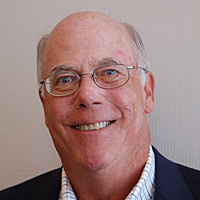At college one of the most popular classes was anthropology. The professor really made the subject live for his students. The final was a single question on the chalkboard, and the students would have three hours to fill their bluebooks. One semester, he wrote "Why?" on the board, and left the auditorium.
Everyone began frantically scribbling away, except for one student, who considered the question for five minutes, wrote "Because" in his bluebook, and turned it in.
He got a "C."
Stephen Hawking, in "The Grand Design," seeks to answer the question, "Why does the universe exist?" He states that the universe created itself from nothing using gravity and a process called "spontaneous creation."
Even if Hawking is right, he has told us how the universe came to be, not why. Science, as powerful and useful as it is, explores the realms of what, when, where and how. It cannot answer the question, "Why?" By its own rules, science can only deal with the physical universe, and leaves untouched so much of the reality that we experience as humans.
